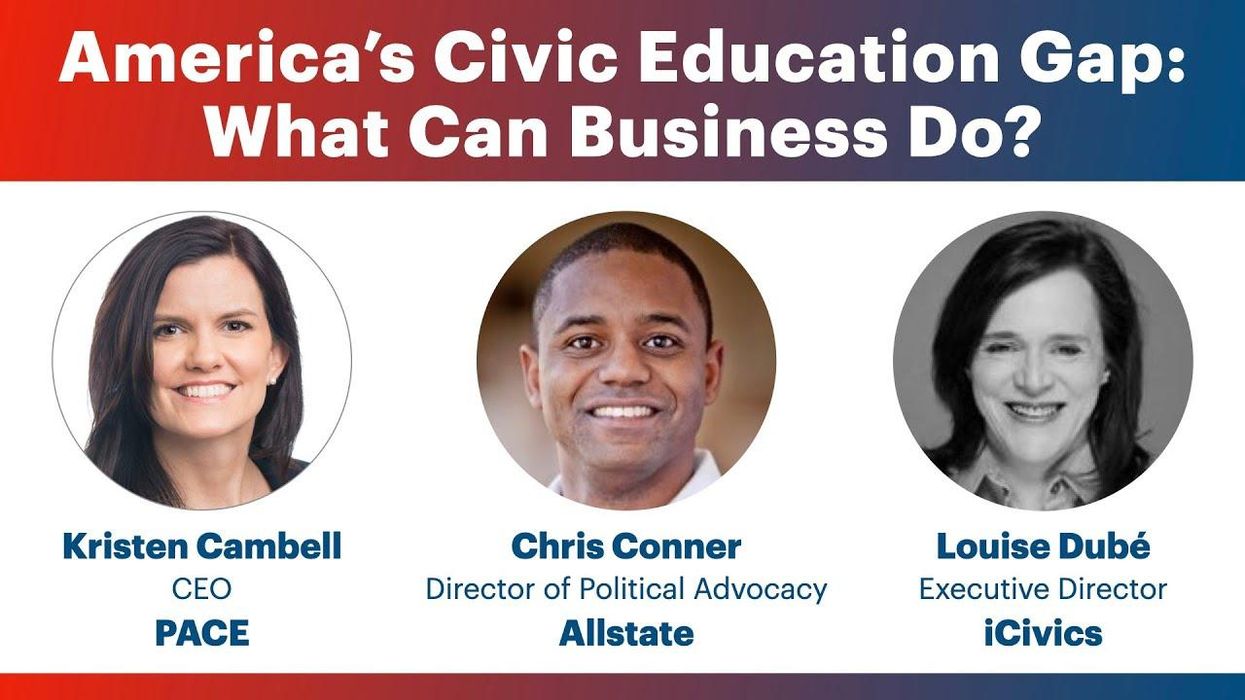Many Americans do not have a basic understanding of how the government works, the Bill of Rights, and the responsibilities of being a citizen. This limited education about our democratic system can lead to distrust in government, polarization, and an openness of some Americans to authoritarianism which is destructive to our country’s social cohesion and economy. Business has a vested interest in supporting civics education.
Businesses can play a role in promoting civics education by supporting greater investment in civics education in middle and high school, and in engaging lawmakers. Today for comparison, we invest 5 cents per child, vs. nearly $54 for STEM.





















